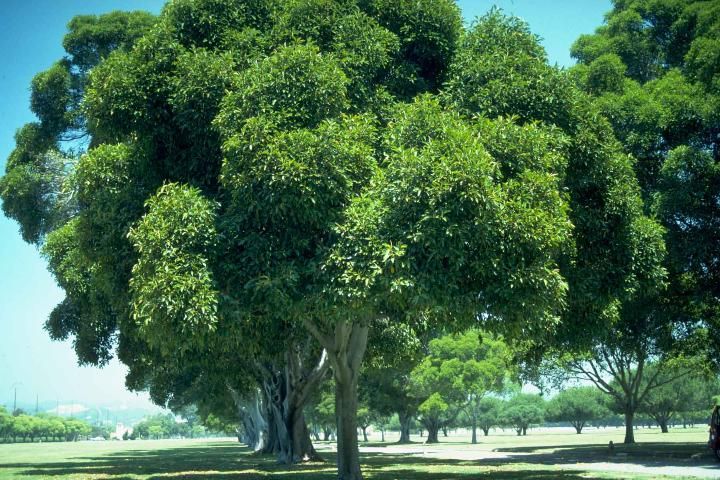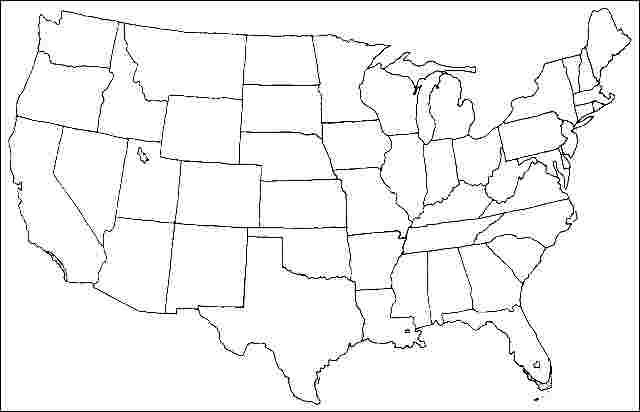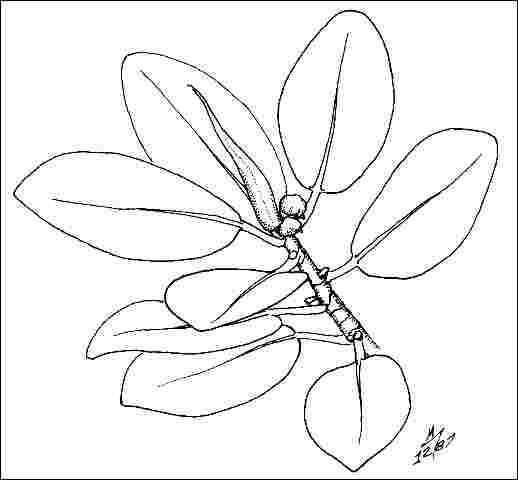Introduction
This broad, spreading evergreen tree is densely covered with oval, blunt-tipped, three to six-inch-long, medium green, smooth leaves, the undersides of which are brown and hairy. One of the hardiest of the rubber trees, Rusty Fig makes an attractive specimen tree, especially when only a few major branches are allowed to develop creating a more open form. It does not develop the profusion of aerial roots which some others do. Rusty Fig's dense growth habit and moderate growth rate make it better suited for smaller landscapes than most other Ficus trees. It grows to about 35 feet in 30-years. It is well-suited as a shade or street tree and should require little maintenance once initial pruning creates a good structural habit. Space major branches along the trunk and keep them trimmed so they remain less than half the diameter of the trunk. It is among the best ficus trees for frost-free climates.

Credit: Ed Gilman
General Information
Scientific name: Ficus rubiginosa
Pronunciation: FYE-kuss roo-bij-ih-NO-suh
Common name(s): Rusty Fig
Family: Moraceae
USDA hardiness zones: 10B through 11 (Fig. 2)
Origin: not native to North America
Invasive potential: little invasive potential
Uses: hedge; indoors; street without sidewalk; screen; shade; specimen; container or planter; parking lot island 100-200 sq ft; parking lot island > 200 sq ft; tree lawn > 6 ft wide; urban tolerant; highway median
Availability: somewhat available, may have to go out of the region to find the tree

Description
Height: 35 to 50 feet
Spread: 35 to 60 feet
Crown uniformity: symmetrical
Crown shape: round
Crown density: dense
Growth rate: moderate
Texture: medium
Foliage
Leaf arrangement: alternate (Fig. 3)
Leaf type: simple
Leaf margin: entire
Leaf shape: elliptic (oval)
Leaf venation: pinnate
Leaf type and persistence: evergreen, broadleaf evergreen
Leaf blade length: 2 to 4 inches, 4 to 8 inches
Leaf color: green
Fall color: no color change
Fall characteristic: not showy

Flower
Flower color: unknown
Flower characteristics: not showy
Fruit
Fruit shape: round
Fruit length: less than .5 inch, .5 to 1 inch
Fruit covering: fleshy
Fruit color: brown
Fruit characteristics: does not attract wildlife; not showy; fruit/leaves not a litter problem
Trunk and Branches
Trunk/bark/branches: branches don't droop; not showy; typically one trunk; thorns
Pruning requirement: needed for strong structure
Breakage: resistant
Current year twig color: brown, green
Current year twig thickness: medium
Wood specific gravity: unknown
Culture
Light requirement: partial sun or partial shade, full sun
Soil tolerances: clay; sand; loam; alkaline; acidic; well-drained
Drought tolerance: moderate
Aerosol salt tolerance: moderate
Other
Roots: not a problem
Winter interest: no
Outstanding tree: yes
Ozone sensitivity: unknown
Verticillium wilt susceptibility: unknown
Pest resistance: resistant to pests/diseases
Use and Management
Easily grown in full sun or partial shade, Rusty Fig will thrive on a variety of well-drained soils. Once established, it can withstand periods of drought and 30-degrees F. for a short time.
The cultivar `Variegata' has leaves variegated with cream-yellow.
Propagation is by cuttings or air layers.
Pests
Two problems are mites and scales.
Diseases
Rusty Fig is subject to root rot on poorly drained soils.